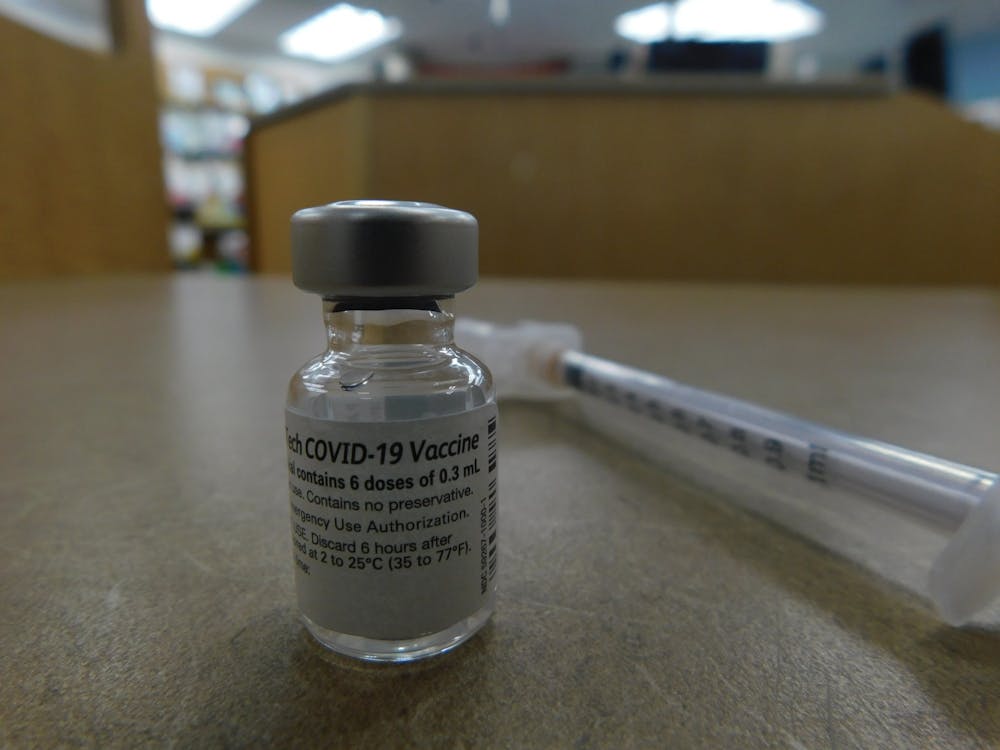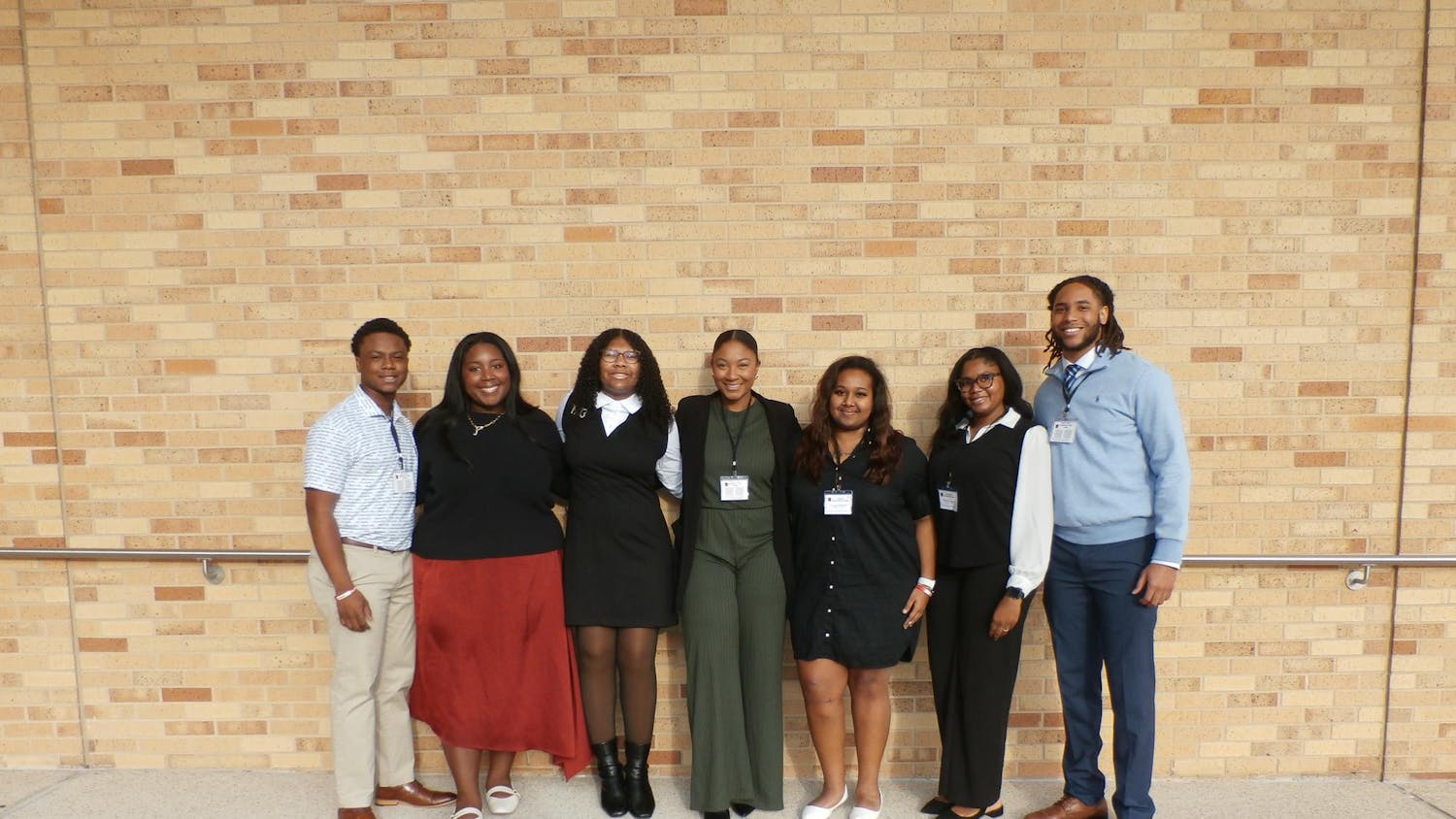As of July 11, 28.3% of Lee County residents have been fully vaccinated for COVID-19, according to the Centers for Disease Control and Prevention.
Those vaccinations have helped lower the virus' spread in the area, but the emergence of new mutations and the possibility of ones that may be vaccine-resistant means that more shots need to go in arms for progress to continue, said Dr. Fred Kam, director of the Auburn University Medical Clinic.
“If there’s any number-one reason we can see why [outbreaks are] not happening, it’s due to vaccination,” Kam said. “So I believe that the only way we're going to make this community — talking about the Auburn University community — more resilient is through vaccination.”
In Lee County, both the share of the general population and population 65 or older that have been fully vaccinated is less than the state overall, according to the Alabama Department of Public Health's COVID dashboard and Census estimates. Alabama is already at or near the bottom of state rankings in vaccine distribution, depending on what day you're looking at the CDC's dashboard.
There were 79 cases of COVID-19 in Lee County in the week before July 11 according to the CDC, far lower than at the peak of the pandemic. But the advent of two new variants — the British variant and the Delta variant — is “cause for concern,” Kam said. These mutations are considered “variants of concern” by the CDC, and both are more transmissible than the original strain of the virus.
Studies have shown that the Pfizer vaccine is still highly effective against the Delta variant, and Moderna and Johnson and Johnson have both reported that their vaccines are also effective against the variant, which is now the strain responsible for the majority of new cases in the United States, according to the CDC’s "Nowcast" estimates.
The greater concern, though, is that a new variant which may be resistant to the vaccine will emerge.
“Every time one of these variants can pop up, then there's always the risk that the variant becomes then a mutation of the virus that can affect the people who've been vaccinated, and that would be a bad case scenario,” Kam said. “If the vaccine stopped working or wasn’t working effectively against the new variant, then we are going to go back to surges and situations where we're having a significant number of cases, and all the disruption that comes with that.”
The public is effectively in "a race" against the virus’ ability to mutate, which is strengthened by an under-vaccinated public, said Laura Grill, president and CEO of East Alabama Health in a statement from late June.
“As a community, state and nation, we must do better," Grill said. "We need people to get vaccinated before the virus mutates more and makes it more difficult for the vaccines to be effective.”
Since vaccines have been available, the average age of those hospitalized for COVID-19 at East Alabama Medical Center has dropped by about two decades to roughly 45 years old, according to Kam, which he said speaks to the effectiveness of the vaccine since older people have been vaccinated at higher rates.
Local mayors, like Ron Anders and Opelika’s Gary Fuller, urged residents to get their vaccines in a June 24 press release from EAMC.
“We’ve come a long way, but our fight against COVID-19 isn’t over yet,” Anders said. “Thank you to each community member who has taken personal responsibility to get vaccinated for the sake of their individual health and the health of those around them. While many have done their part, our county and state’s vaccination rate still isn’t where we need it to be to combat COVID-19 and its variants. We need all who can to help contain this virus.”
Fuller emphasized that the public should not get complacent.
“Friends, now is not the time to be complacent. There are still many people in Opelika and our surrounding area that need to be vaccinated,” Fuller said. “I, myself, have taken the vaccine and hope others will see the importance. Do it for your family, your friends, your co-workers. We’ve made a great deal of progress, but we must stay vigilant in order to keep the virus contained.”
Rare cases of myocarditis associated with the vaccine have been one source of worry for those hesitant to get vaccinated. The risk, however, is exceptionally small. For males aged 12-29 — who are experiencing the highest rate of myocarditis related to the vaccine — there are around 41 cases of myocarditis per million second doses, according to World Health Organization research.
“The facts are clear: this is an extremely rare side effect, and only an exceedingly small number of people will experience it after vaccination," health officials said in a statement on June 23. "Importantly, for the young people who do, most cases are mild, and individuals recover often on their own or with minimal treatment. In addition, we know that myocarditis and pericarditis are much more common if you get COVID-19, and the risks to the heart from COVID-19 infection can be more severe."
The CDC, World Health Organization and other public health organizations say it's clear: The benefits of vaccination outweigh the risks.
“It's almost considered in today's medical and scientific world that every death that happens from this point going forward is preventable if people got vaccinated,” Kam said.
Vaccines are available at several locations in Lee County, including East Alabama Apothecary, CVS, Walgreens, Walmart and Publix. The CDC compiles vaccine locations and lets you search by ZIP code at this website.
Do you like this story? The Plainsman doesn't accept money from tuition or student fees, and we don't charge a subscription fee. But you can donate to support The Plainsman.

Evan Mealins, senior in philosophy and economics, is the editor-in-chief of The Auburn Plainsman.





